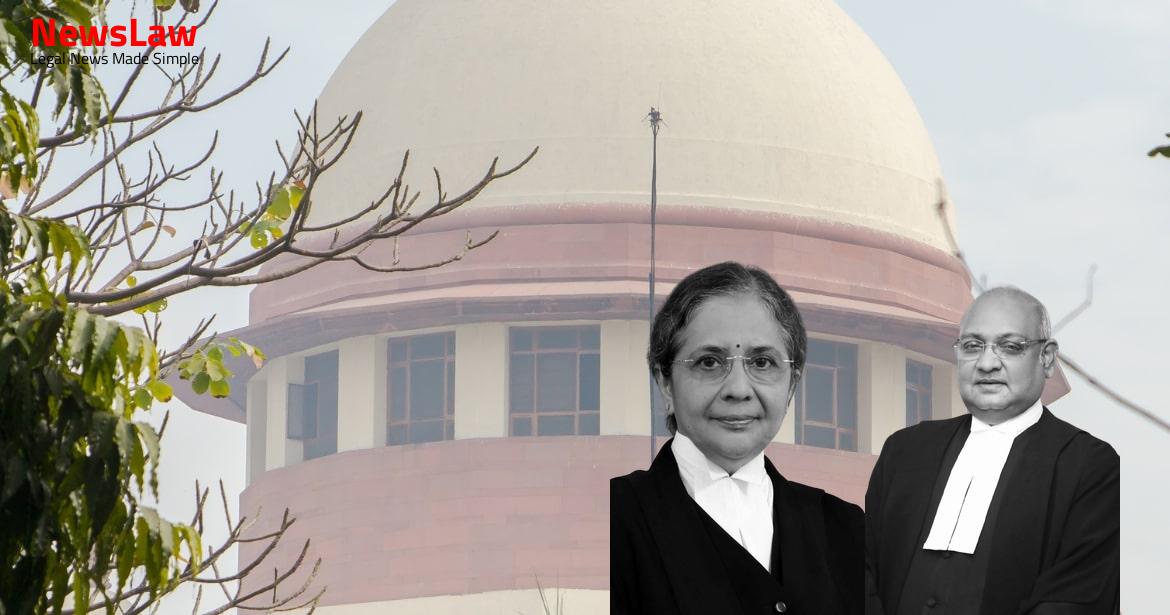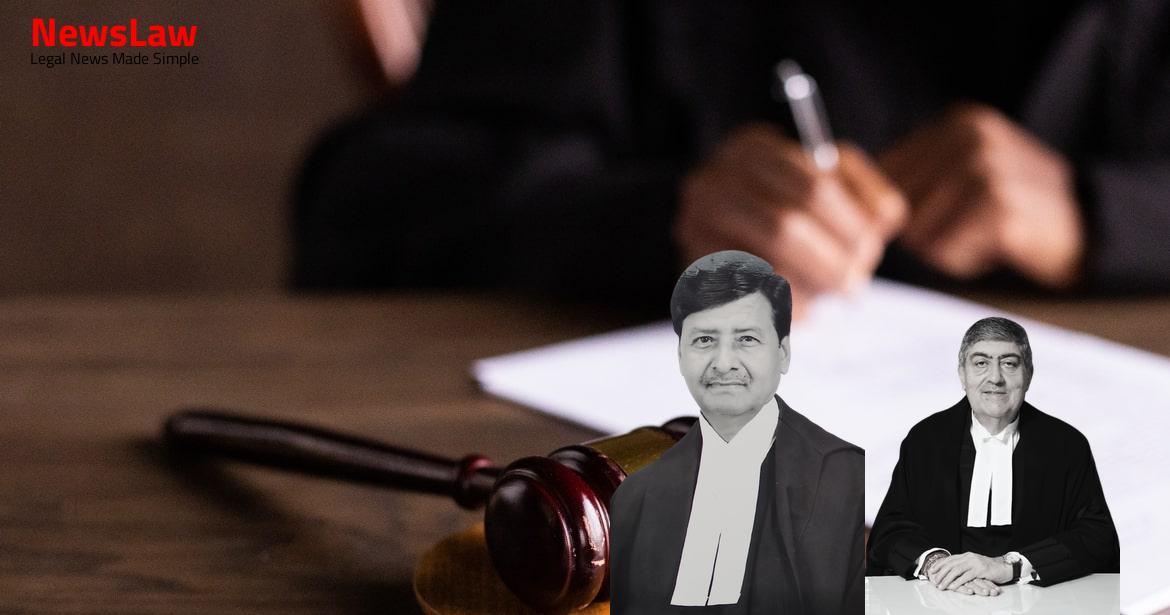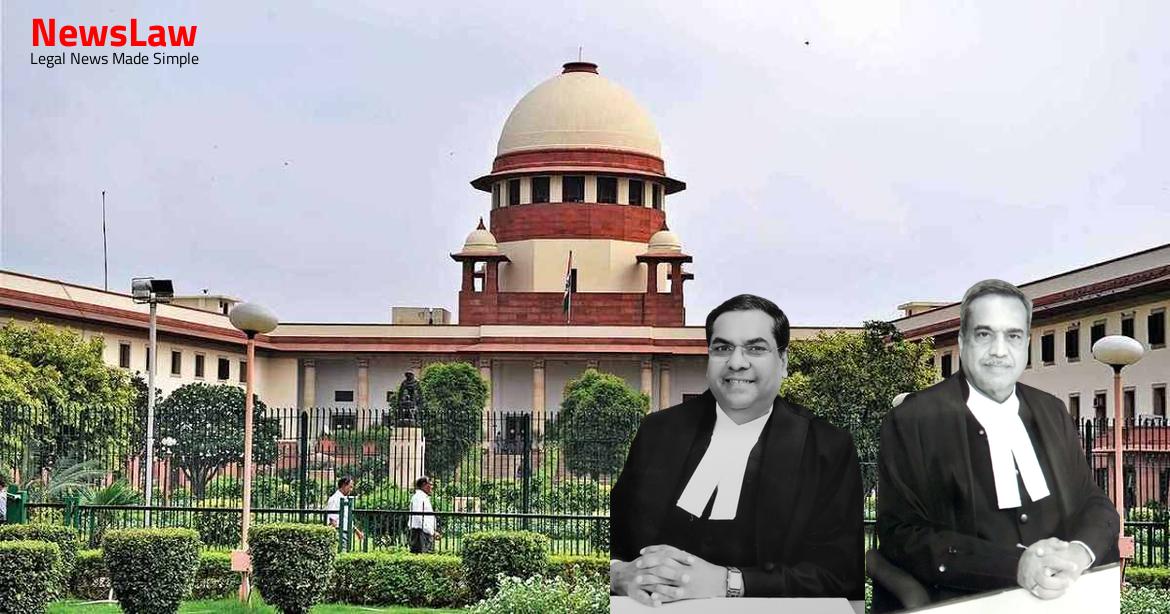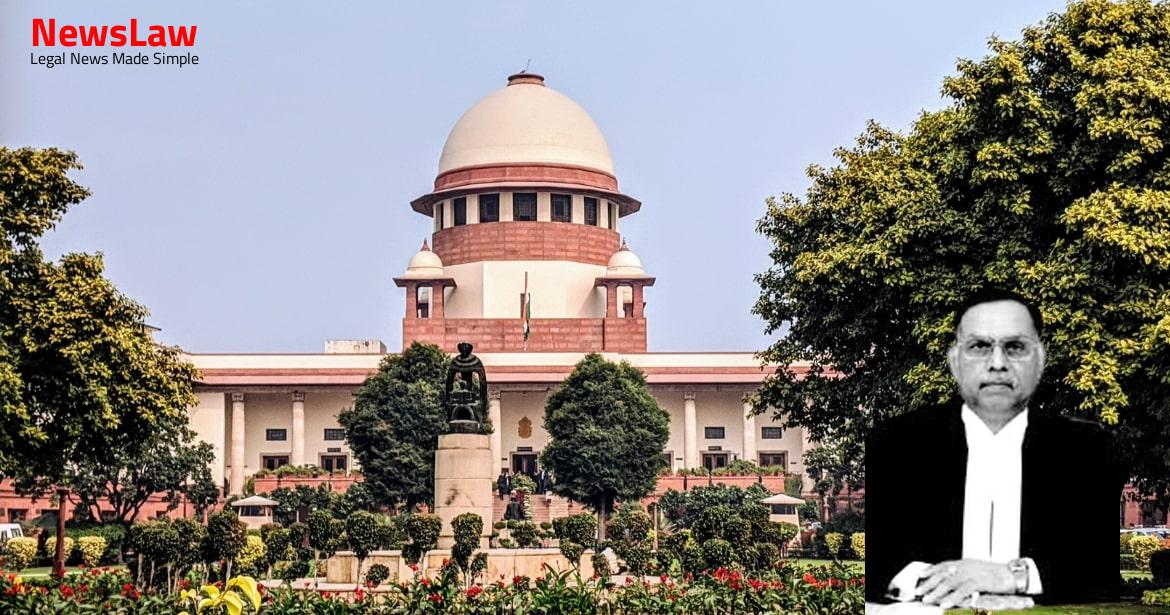Explore the intricate legal analysis conducted by the High Court in a recent case concerning the grant of bail. The court’s deliberation on balancing personal liberty with the public interest in the administration of the criminal justice system sheds light on the complexities of such decisions. Dive into the details of the court’s reasoning and considerations in this fascinating legal exploration.
Facts
- The High Court had passed the orders granting bail based on relief granted to other co-accused persons.
- The appellant’s counsel argued false implication and sought bail on the grounds of parity with other co-accused who were granted bail.
- The orders disapproving bail for co-accused Fahim and Naim were cited as reference by the Court.
- The High Court was found to have granted bail on irrelevant considerations and ignored relevant features of the case.
- The appellant has no criminal history apart from the present case and has been in jail since 21.8.2019.
- The orders in the present appeals have shortcomings
- Similar issues were found in the impugned orders
- These shortcomings need to be addressed
Also Read: Legal Authority and Res Judicata in Representation Matter
Arguments
- Learned counsel highlights that stringent bail conditions have been imposed by the High Court and there have been no violations.
- The High Court’s decision to grant bail based on generalized accusations without specific roles is supported, especially since no conditions were breached.
- The importance of the High Court providing reasons for granting bail is emphasized, citing the recent case of Mahipal vs Rajesh Kumar.
- The counsel for the accused-respondent No 2 argues that previous court decisions disapproving of bail for co-accused should not apply due to different circumstances.
- A comparison is made between the duration of custody for the accused in previous cases and the present respondents, suggesting a longer period of detention for the latter.
- It is suggested that setting aside the impugned orders after a significant time may not be in the interest of justice.
- The postmortem report indicated as many as eight ante mortem injuries.
- The offense was alleged to have taken place in broad daylight.
- Learned counsel for the appellant and the State relied upon previous court decisions highlighting no material distinction in the case of present respondents.
- The concession of bail was granted to the present respondents in parity with co-accused persons.
- The impugned orders were challenged and sought to be set aside.
Also Read: Court’s Legal Analysis on Filing Counter-Claim
Analysis
- The High Court failed to indicate relevant facts and reasons for treating respondent No. 2’s case as identical to the co-accused
- The prosecution case against respondent No. 2 named as an assailant in the FIR is not fanciful or improbable
- The impugned order is set aside due to the High Court’s failure to consider the relevant features of the case
- The period of custody of co-accused persons does not impact the appeals
- Stringent conditions for bail do not sustain if hit by the court’s dictum
- The court disapproved bail granted to a co-accused, thereby setting aside the order for respondent No. 2’s bail
- The granting of bail to respondent No. 2 based on the co-accused’s bail approval is not valid in the interest of justice
- The protection of personal liberty under Article 21 must be balanced with the public interest in the administration of the criminal justice system
- Justice D Y Chandrachud observed
- Observation made for a two-Judge Bench
- The Court has allowed the accused to apply for bail after surrendering and at an appropriate stage.
- Even if the trial has progressed and the appellant has been examined, parity in the matter cannot be denied.
Also Read: Analysis of Conviction Based on Circumstantial Evidence
Decision
- The appeal is allowed, and the impugned order dated 03.12.2020 is set aside requiring respondent No 2 to surrender immediately.
- The court has not made any judgment on the merits of the case, and the observations made will not prejudice the parties’ interests or influence the trial court’s final decision.
- All pending applications are disposed of as well.
- The appeal is allowed, and the impugned judgment and order of the High Court dated 25 February 2020 are set aside.
- The submission regarding limitation and delay does not affect the substance of the matter.
- The appeals succeed, the impugned orders dated 26.08.2020 and 17.06.2020 are set aside, and respondent No 2 in these appeals must surrender immediately.
- If they apply for bail again after surrendering, such applications may be considered on their merits at an appropriate stage.
- No case for granting bail is found, and as a result, the second respondent must surrender immediately.
- The order granting bail was passed on 03.12.2020, and the matter was initially considered on 12.07.2021.
Case Title: AMINUDDIN Vs. THE STATE OF UTTAR PRADESH (2022 INSC 1058)
Case Number: Crl.A. No.-001709-001709 / 2022



